Hope for Depression Research Foundation (HDRF), the nation’s leading nonprofit dedicated exclusively to advanced depression research, held its 19th Annual HOPE Luncheon Seminar at The Plaza Hotel. This year’s program explored the urgent theme “Stress and the Brain: The Link Between Stress and Depression,” and raised $650,000 for trailblazing scientific research.
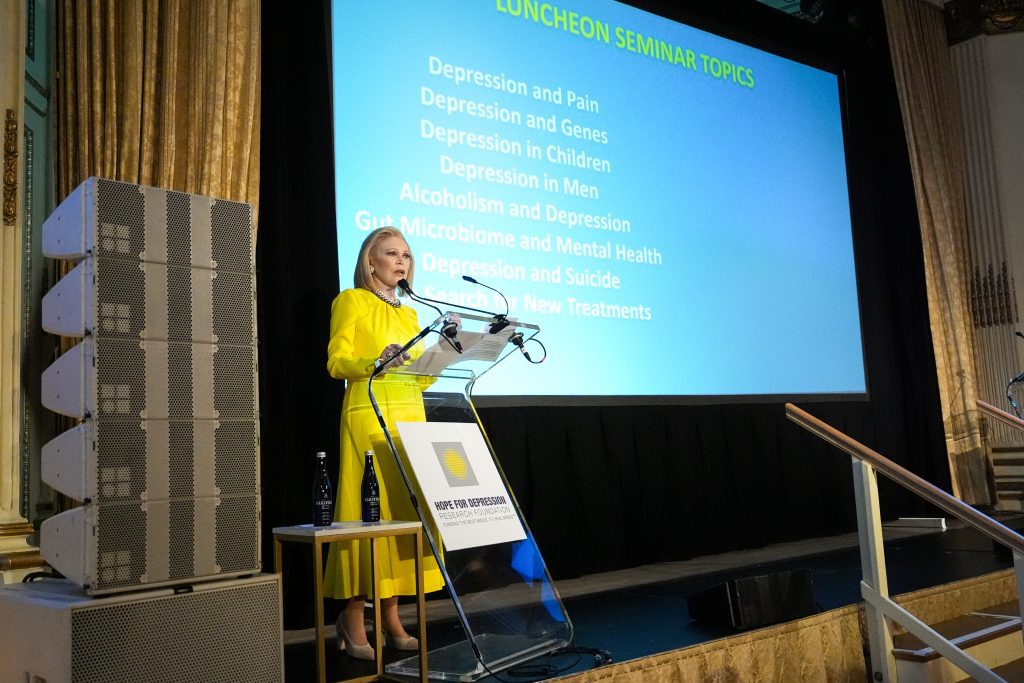
Audrey Gruss Hope For Depression Research Foundation’s 19th Annual HOPE Luncheon The Plaza Hotel, New York, ©Patrick McMullan Photo – Sean Zanni/PMC
HDRF Founder and Chair Audrey Gruss opened the event by reflecting on nearly two decades of progress and public education. “HDRF has been a trusted source of information about depression and anxiety for these past two decades,” she said, noting the timeliness of the topic in an era defined by volatility and chronic stress. Gruss emphasized the power of science to illuminate how the nervous system responds to uncertainty and how resilience can be strengthened.
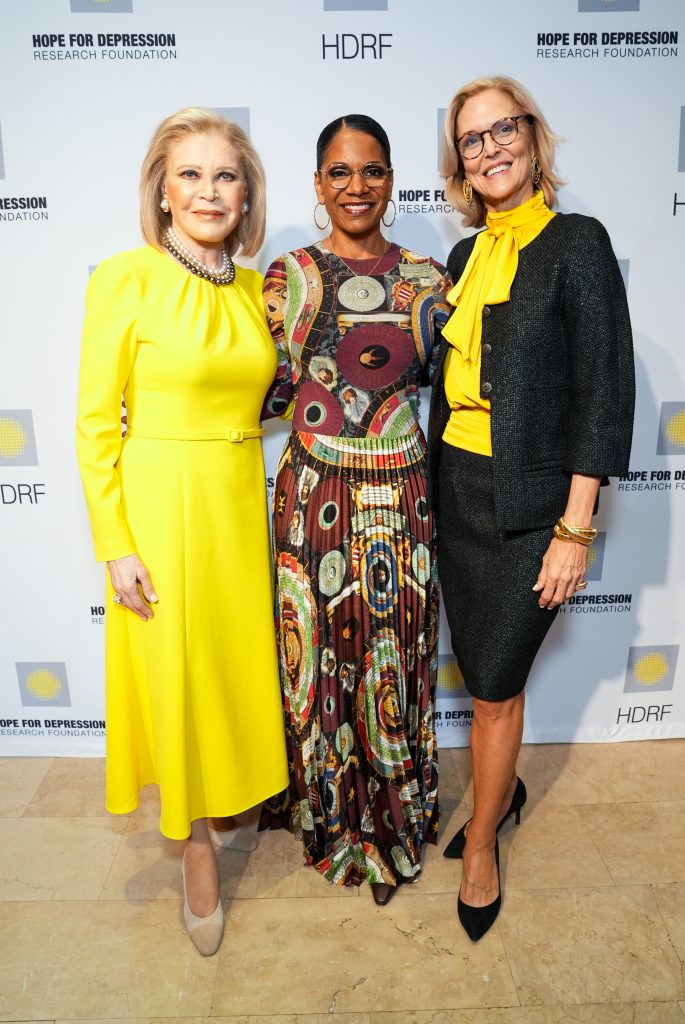
Audrey Gruss, Audra McDonald and Louisa Benton attend Hope For Depression Research Foundation’s 19th Annual HOPE Luncheon (Photo by Sean Zanni/PMC/PMC)
A highlight of the luncheon was the presentation of the 2025 HOPE Award for Depression Advocacy to Broadway icon Audra McDonald. Gruss praised the six-time Tony Award winner for her candor in sharing her mental health journey, including a suicide attempt during her time at Juilliard. “She has bravely shared her story and message of resilience with the media and serves as an advocate for at-risk youth,” Gruss said.
McDonald’s emotional acceptance speech earned a standing ovation. She recounted the darkest period of her life her hospitalization at Gracie Square and the role treatment played in her recovery. “Depression lies,” she told the audience. “It tells you that you’re a burden… that the world is better off without you. I have absolutely no judgment about medication or depression.” Years later, passing the hospital while pregnant with her second child, she reflected that “every step past that hospital felt like a love letter to survival… coming home to yourself is about becoming who you’re meant to be.” She closed with Toni Morrison’s reminder: “You are your best thing.”
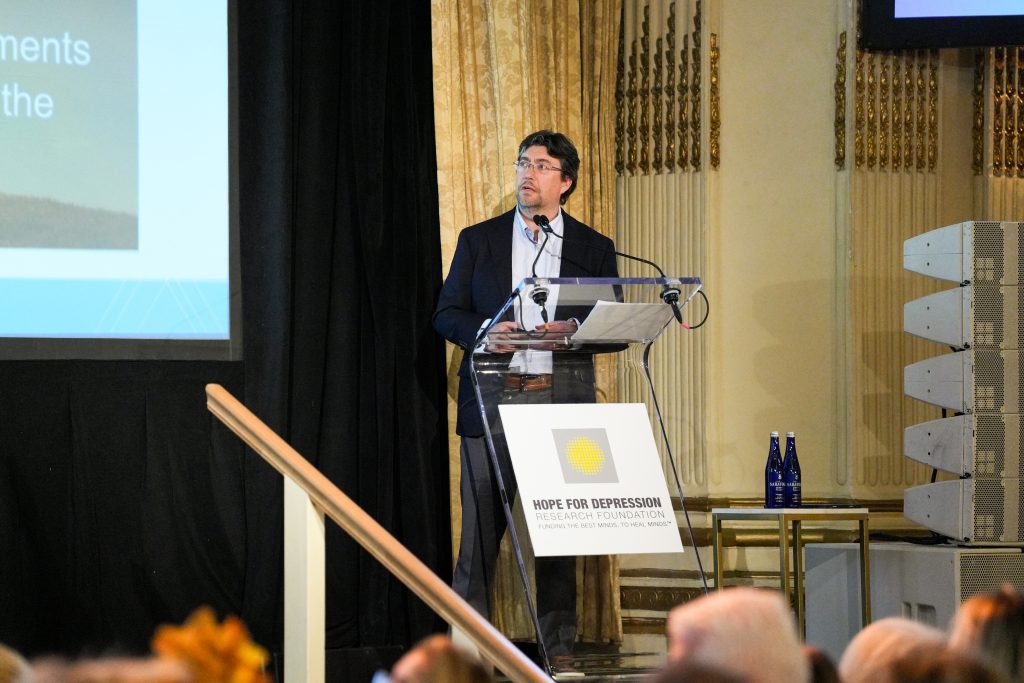
James Murrough M.D. Ph.D. (Photo by Sean Zanni/PMC/PMC)
The program also featured leading experts in psychiatry and neuroscience. Dr. James Murrough, Director of the Depression and Anxiety Center at Mount Sinai, explained how chronic stress can exhaust the body’s natural protective systems, paving the way for depression. Stress in short bursts, he noted, is adaptive yet constant, low-grade stress can erode resilience. His practical takeaways underscored that depression is a brain-based, medical illness; that resilience can be strengthened; and that community, relationships, and challenging negative self-narratives are essential to healing.
Neuroscientist Dr. Huda Akil, a member of HDRF’s Depression Task Force, expanded on the concept of “stress fitness”- the ability to anticipate, adapt, and recover from challenges. She highlighted her team’s groundbreaking work identifying early warning signs of depression in college freshmen, emphasizing that prevention must be the next frontier in mental health.
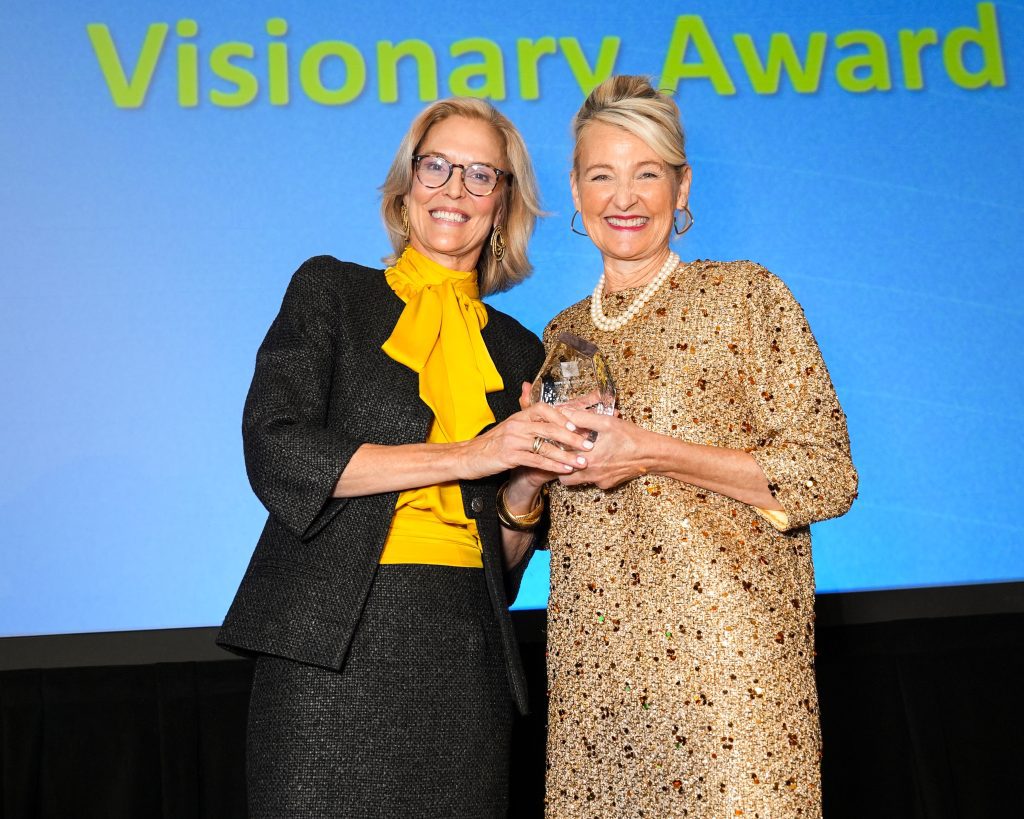
Louisa Benton and Elyce Arons (Photo by Sean Zanni/PMC/PMC)
HDRF Executive Director Louisa Benton continued the program by spotlighting the Foundation’s nationwide outreach initiatives, including the Race of Hope 5K series in Southampton, Palm Beach, and New York City.
Elyse Arons, CEO of Frances Valentine, accepted the 2025 Hope Corporate Visionary Award and spoke movingly about the loss of her business partner and dear friend Kate Spade. Supporting HDRF, she noted, is part of honoring Spade’s legacy and advancing research that can “create tangible paths to healing.”
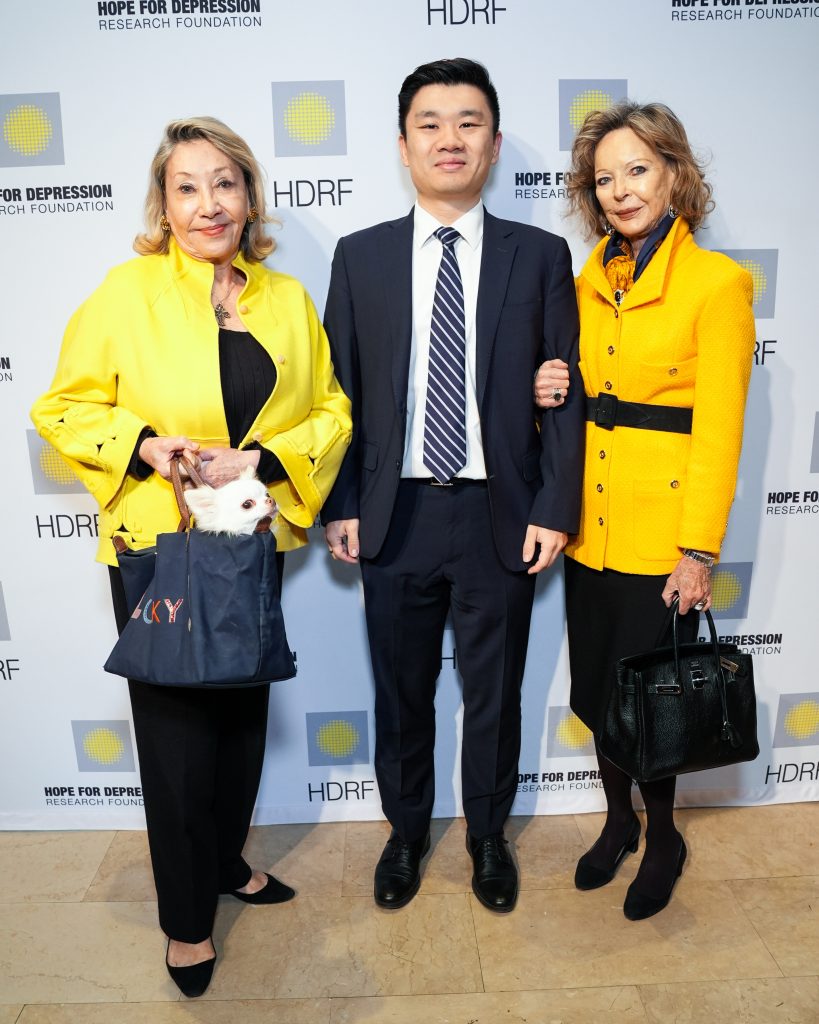
Susan Gutfreund, Huanjie Yuan and Margo Langenberg (Photo by Sean Zanni/PMC/PMC)
The luncheon was made possible through the generous support of event co-chairs, as well as Founder, Benefactor, Diamond, Patron, Friend, and Gold sponsors, along with the brands contributing to the gift bags.
About the Hope for Depression Research Foundation
Founded in 2006 by Audrey Gruss in memory of her mother, Hope, HDRF is committed to transforming the understanding and treatment of depression and related mood disorders through innovative brain science. Despite depression being the leading cause of disability worldwide, current medications remain ineffective for half of all patients. HDRF has invested more than $80 million into groundbreaking research, including the work of its international Depression Task Force and multiple clinical trials currently underway in the U.S. and Germany. With a mission centered on discovery, prevention, and new therapies, HDRF continues to drive hope forward for millions affected by depression.
